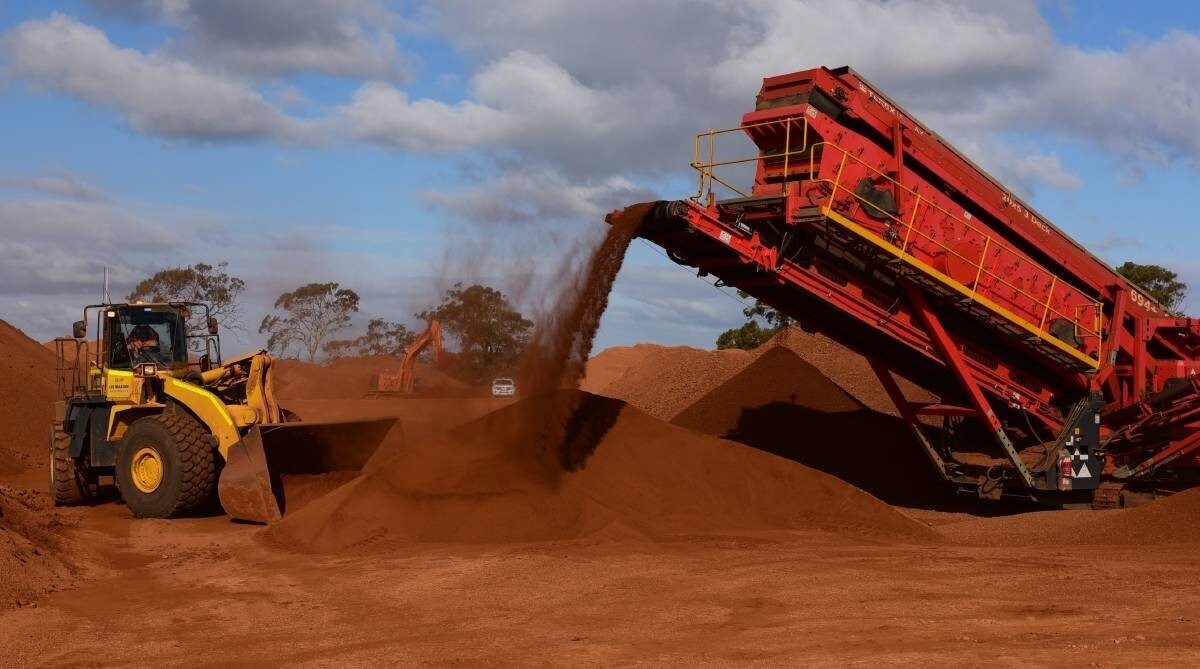您想继续阅读英文文章还
是切换到中文?
是切换到中文?

THINK ALUMINIUM THINK AL CIRCLE

ABx Group is rapidly evolving from a pure-play bauxite explorer into a diversified minerals and technology business with three key growth areas bauxite mining, aluminium fluoride production, and rare earths recovery.

Image Source: ABx Group
The company’s transformation is being fuelled by global supply chain disruptions and a growing demand for critical minerals, creating new commercial opportunities for the Australian-based company.
Bauxite mining: ramping up to meet global shortages
With a spike in bauxite prices driven by supply disruptions in Guinea and China, ABx is seizing the opportunity by accelerating development of its projects in Tasmania, Queensland, and New South Wales.
The bauxite mine in Tasmania is expected to be operational in 2025, subject to achieving final planning approval.
The DL130 Project in northern Tasmania, with 5.7 million tonnes of cement-grade bauxite, has already secured environmental and landholder approvals and awaits final planning approval from the Meander Valley Council.
Meanwhile, in Queensland, the company is exploring a Direct Shipping Ore (DSO) operation at the Sunrise Project in Binjour, which holds 37 million tonnes of bauxite. It is anticipated to start production in 2026.
The plan calls for 1.2 million tonnes per year of high-grade bauxite to be shipped via the Port of Bundaberg.
ABx also owns the Taralga Project in New South Wales, with a resource of 37.9 million tonnes.
Aluminium Fluoride: turning industrial waste into strategic chemicals
ABx’s second growth pillar is aluminium fluoride production through its 83%-owned subsidiary ALCORE, which is focused on converting aluminium smelter waste into valuable industrial chemicals.
ABx Group Managing Director Mark Cooksey said, “The ALCORE opportunity came about because we were looking for alternative markets for bauxite other than alumina refining.
“We had an idea to convert bauxite directly into aluminium fluoride. Subsequently, we established that a lower-cost source of fluorine was essential, and identified excess aluminium smelter bath as an ideal source.”
Hydrogen fluoride produced from the recovered bath waste is essential for aluminium fluoride production, which is critical for smelters. Australia, despite being a major aluminium producer, currently imports 100 per cent of its aluminium fluoride, over 80 per cent of which comes from China.
Earlier this year, ALCORE signed a lease agreement with Rio Tinto Aluminium for a site next to the Bell Bay smelter in northern Tasmania. The location offers both an ideal site for its pilot plant and a reliable supply of smelter bath waste.
Rare earths: unlocking high-value minerals from clay
ABx’s third growth area is in rare earth elements (REEs), discovered in ionic clay associated with its bauxite deposits just as the global rare earth market faces tightening supply conditions.
Cooksey added, “The rare earths opportunity came about because we recognised that ionic adsorption clay deposits were becoming more important, and we knew that our bauxite was associated with clay.”
In 2025, China—responsible for nearly 100 per cent of global dysprosium and terbium refining imposed export restrictions on these critical minerals, which are essential for wind turbines, EV motors, and defence technologies. Dysprosium, in particular, carries the most acute supply risk.
ABx’s Deep Leads Project in northern Tasmania hosts 89 million tonnes of clay-rich ore with 844ppm total rare earth oxides and some of the highest dysprosium and terbium grades in Australia. Independent tests show the deposit has the highest ionic extraction levels among all clay-hosted rare earth resources in the country.
Responses








